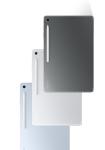"Of all the emerging-markets countries," says Christopher Taylor, emerging-markets portfolio manager at New York's Hudson Fairfax Capital, "India is the one with the solid foundations."
The country doesn't want for growth: GDP increased 8.2 per cent last year, and 7 per cent is expected this year. If anything slows the pace over the long term, it won't be demographics. India's population is among the youngest in the world, with 60 per cent of its people under age 32.
-
Don't miss: India Rising
-
Special: Look to India
An emerging middle class of 300 million provides "a phenomenal growth prospect," says Siddharth Mehta, fund manager in London for San Francisco-headquartered Gerken Capital, which recently launched a long-short India fund called WM India.
Mehta says that five years ago Indians saved 30 per cent of their income; today the savings rate is 18 per cent as they splurge on automobiles, home loans and cell phones. In 1999 India had 2 million cell phone subscribers. Today that many sign up every month, Mehta says, noting that still only 2 out of every 100 Indians have a cell phone.
|
India Growth Story | ||||
|
These New York-listed shares have rich multiples, reflecting | ||||
|
--Price-- | ||||
|
Company |
Industry |
Recent |
52- wk |
2005 |
|
Dr Reddy's Lab |
Pharma |
$16.62 |
$19.90 |
43 |
|
HDFC Bank |
Bank |
47.19 |
50.00 |
20 |
|
ICICI Bank |
Bank |
22.10 |
22.90 |
14 |
|
Infosys Tech |
IT Service |
75.56 |
78.48 |
38 |
|
Mahanagar |
Telecom |
6.7 |
8.88 |
12 |
|
Satyam |
IT Service |
25.97 |
28.50 |
21 |
|
Tata Motors |
Auto |
9.6 |
12.25 |
11 |
|
Wipro |
IT Service |
21.91 |
25.70 |
33 |
|
Prices as of June 17. All companies trade in the U.S. as ADRs. | ||||
Mehta also reckons that 20 million Indians a year graduate from university, many with math or computer degrees. Hudson Fairfax Capital's Taylor says the high-end workforce is a reason that many of India's exports --computer software and pharmaceuticals -- look snazzier than China's.
Yet the country has hurdles ahead. Red tape, especially at the state level, is beyond comprehension. India struggles to generate enough power to keep up with its rapid growth. The place is saddled with bumpy roads, patchy telecommunications networks and a nuclear rival in Pakistan.
For US investors one hurdle is finding ways to place bets. Of India's 6,000 listed companies, only 11 have American Depositary Receipts. India is only gradually opening its doors to foreign investors. "We are very prudent in relation to our foreign exchange inflows," says Uday Raval, director of the US office of Karvy, India's Charles Schwab. Tough restrictions on foreign exchange inflows may explain why only a handful of pure-play India funds are available to US investors.
Two of those funds, both closed-end, have had terrific five-year runs. One is the India Fund from Oppenheimer Asset Management. The fund trades at $27, or a 4 per cent discount to net asset value, and has an annual market return of 19 per cent over the past five years. Another, Morgan Stanley India Investment, trades at a 3 per cent premium to NAV and has posted a 31 per cent annualised five-year return.
You'll pay to invest this way. India Fund charges $1.60 in annual expenses per $100 in assets, the Morgan Stanley fund $1.40. It is even steeper for an open-end fund, Eaton Vance Greater India, which has returned 9.8 per cent annualised since 2000 after its expenses of $2.77. It also has a 5 per cent back-end load.
Do-it-yourselfers can buy ADRs, such as the ones listed in our table. Several of these companies are not historically cheap, says Gregory Mattiko, portfolio manager specializing in emerging market equities at J.P. Morgan Funds, but India should be considered a good long-term buy for investors.






 © 2025
© 2025